© Wikicommons
During the 1990s, the term ‘oligarch’ referred to a symbol of high social status, and was claimed by the extremely wealthy and men of power in Russia.
However, the Russian oligarchy has evolved considerably over the past 25 years, and today it is mostly associated with the worst period of the presidency of Boris Yeltsin. Many oligarchs have fallen into oblivion, some are in prison, others are living in exile outside Russia, and the most resistant among them have adapted to the new rules, renouncing all political ambition.
The appearance of the capitalist oligarchy of Russia during the Yeltsin era is due to many factors: privatisation methods, disorganisation of industrial relations, opening up of foreign trade, and relations between economic and financial powers.
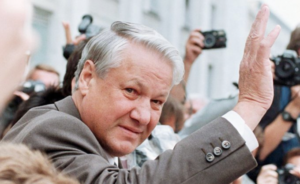
However, by arriving on conquered ground in the East, after the demise of the Soviet Union, the West gave rise to all sorts of resentments in Russia, and brought about the conditions that allowed Vladimir Putin to establish his personal power.
And the Russian president is the first culprit of the drama that is unfolding today in Ukraine. But the Russian oligarchs, who helped him come to power – and stay in power – are also responsible.
A distinction should be made between oligarchs and ‘ordinary billionaires’, if one can describe them as such. According to Forbes, there are some123 billionaires in Russia, the vast majority of whom are unknown to the general public; they are only occasionally of interest to the specialised economic press.
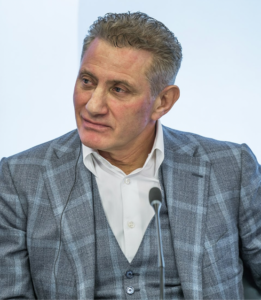
The ‘oligarchs’ on the other hand are all concentrated in the group of the top 20 billionaires who are known to have a certain political influence.
They are those who are regularly heard by, and sometimes even listened to by the Kremlin… Alisher Usmanov, Viktor Vekselberg, Vagit Alikperov, to name but a few.
There are President Putin’s personal friends…Vladimir Potanin, owner of the Norilsk Nickel Corporation and, as of March 2022, the wealthiest man in Russia.
Gennady Timchenko, founder and owner of the private investment firm, Volga Group.
Arkady and Boris Rotenberg, co-owners of the Stroygazmontazh (SGM Group), the largest construction company for gas pipelines and electrical power supply lines in Russia.
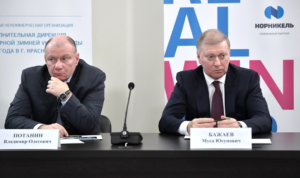
Russian oligarchs, billionaires and wealthy individuals – more than 6000 Russians possess a fortune of more than 150 million dollars – form a group that shares certain values and lifestyles.
Most of them have assets and, above all, holdings in European countries either directly or through front companies, especially in England, where there is the largest concentration of huge Russian fortunes outside Russia.
It can be observed that while the owners of these fabulous fortunes continue to live and work mainly in Russia, their family members, and especially their children, no longer live there at all and are very often acculturated and educated in foreign universities.
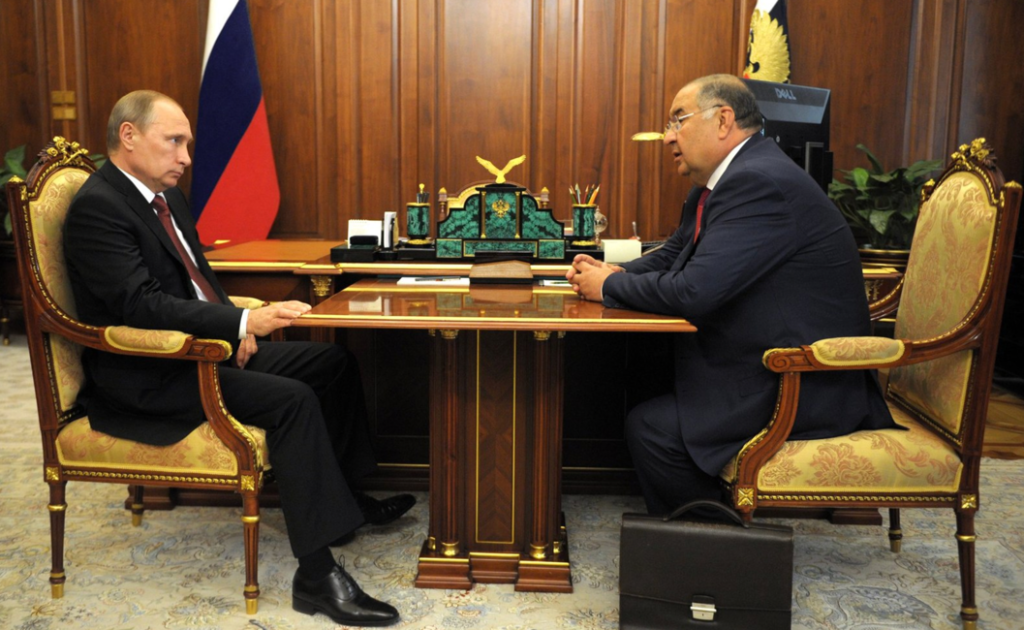
To continue the distinction between oligarchs and billionaires, it should be noted that the oligarchs will continue to rally around President Putin, while the billionaires will probably refrain from making political statements and judgments.
If the military operation in Ukraine does not proceed quickly and efficiently enough, and if the war gets bogged down or turns into guerrilla warfare, the billionaires will dissociate themselves from the source of power and gradually move away from a Russian ruling class which they know is totally discredited in the eyes of the West.
The resulting waves of discontent would then begin to spread across the community, together with the temptation, including by certain oligarchs, to ditch Putin.
As a consequence, these people have found themselves in a very delicate position, and even in conflict with the authorities, including the Kremlin, which by extension means with Vladimir Putin himself.
RUSSIAN GAS: A POLITICAL WEAPON
Since Russia’s invasion of Ukraine or ‘special military operation’ as President Putin would have it, Western sanctions have hit the Russian economy very hard. The Russian stock market is now trading about 50% below its October peak last year, and investors have already lost large amounts of money this year. Despite Gazprom’s record profits – due to soaring gas prices – hundreds of thousands of shareholders were left empty-handed for the first time since 1998. As a result of the war in Ukraine, Vladimir Putin and his team of close advisors apparently decided to withhold the money to compensate for the drop in revenues. Investors were outraged as Gazprom’s shares fell by 30%, leading to a trading halt.

Gazprom is the most popular stock among Russian retail investors and according to June figures, Gazprom accounted for 36.5% of shares held by retail investors on the Moscow Stock Exchange. A total of 19.8 million people are affected. So, what could have prompted Putin and his associates to pass such an unpopular measure? In all likelihood, they came to the conclusion that there would be nothing to seize in the second half of the year, so it was now or never.
The Kremlin probably assumes that the volume of gas exports to Europe will remain low or will be reduced to almost nothing. Putin may have decided to use Gazprom as a political weapon, which would also cause a collapse of exports. Exports to Europe are the most vulnerable part of Gazprom’s business, and their loss in the short term would be a major blow. The large number of foreign investors among Gazprom’s shareholders (up to 25%) may also have played a role in the government’s decision.
Be that as it may, there seems to be a curse around Gazprom. In the past few months, at least eight oligarchs and business executives have died in highly suspicious circumstances. The fact that in one way or another, most of them were linked to Russian energy giants Gazprom and Novatek which are centre stage in the Kremlin’s economic and military confrontation with the West over Ukraine, only adds to the suspicion of a conspiracy.
ANOTHER SHADOW OVER PUTIN’S REGIME

It is no secret that Russia does not go easy on its critics. There is the Novitchok nerve agent attack on Sergey Skripal, a former Russian military intelligence officer in 2018, and the 2020 toxic attacks on opposition politician Alexey Navalny, a vocal critic of the Kremlin. These are, among many other cases, just two instances of attempted murder of high-profile opposition figures.
It has been clear for some time now that anyone critical of the Kremlin and Vladimir Putin should, as a safety measure, seek personal protection. This applies to people living in Russia or abroad.
Since Russia’s brutal invasion of Ukraine on or just before 24 February, nine top Russian business executives have officially died. In some cases, they were killed with their families sometimes suffering the same fate; things are far from clear. However, what is troubling is that most of them were involved in the Russian energy sector.
The choice of words is decisive here: most reports mention the deaths of several Russian ‘oligarchs’. Yet almost all the deceased are former top-level managers or entrepreneurs of the Russian economy and one must not suppose that Putin himself has anything to do with each and every one of these cases. According to specialists, many of these people were politically too insignificant.
Rather, these mysterious deaths could be the result of a “small, low-level war”. It should be pointed out that the structures in Russia and the Kremlin are strictly hierarchical, and communication takes place exclusively at the same hierarchical level. It is therefore possible that a conflict broke out at a lower level without Putin being personally involved.

According to Dr Fabian Burkhardt, research fellow at the Leibniz Institute for East and Southeast European Studies in Germany, “At present, there is no indication that these deaths constitute a series of centrally coordinated assassinations.” While it is true that some Russian entrepreneurs have died in dubious circumstances, the accumulation of such instances since the beginning of the Russian war of aggression in Ukraine is striking. But all the deaths are not necessarily related to the war.
What’s more, other than speculation, it is not possible to establish a direct link between the deaths. However, six of the eight people who died in murky circumstances happened to work in the Russian energy sector. In fact, half of them were directly employed by Gazprom.
In principle, several scenarios are possible, according to a number of experts. Top Russian managers generally have a stressful and ‘unhealthy’ lifestyle. Dangerous hobbies and sports can lead to accidents, and too much stress at work can lead to heart attacks or suicide. However, the frequency of cases, both in Russia and abroad indicates that other factors may be at play.
For example, the Russian secret service could eliminate certain people because they have important information that must not fall into the wrong hands.
There is also the issue of redistribution of property and property rights in Russia due to the war. This is already causing friction and a certain amount of infighting which can also lead to competitors in the economic sector eliminating each other with the help of the secret services.
But so far, there are no proven sources on why this might actually be happening.
POSSIBLE LINK BETWEEN CASES IN THE ENERGY SECTOR
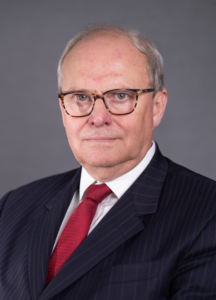
Swedish economist Anders Åslund sees a possible link, at least as far as the Gazprom deaths are concerned. He says he has learned from Russian sources that the Russian secret service has compiled two lists of names of energy executives in Russia. One at the end of 2021, the other in early March this year. This is what Åslund told the New York Post: “Putin finances much of his business through Gazprom and Gazprom Bank. And the executives who work there know all about this secret financing. Gas is the most corrupt sector in Russia.”
It is likely that the Kremlin suspects people at the top in the energy sector may be leaking information about funding for secret operations by the Russian secret services and financing of the invasion of Ukraine by the Gazprom Bank.
Anders Åslund understands that lists of names were presented to Vladimir Putin by the domestic security agency, the FSB. He is said to have authorised, if not their liquidation, at least some sort of punitive action against the people on the list, without taking a closer look at them.
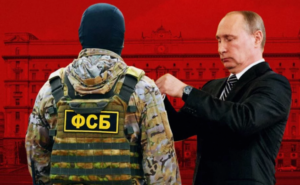
In addition to information leaks, this is also about money…a lot of money. The Warsaw Institute think tank notes this in a report: “It is possible that some high-ranking people linked to the Kremlin are now covering up traces of fraud in state-owned companies. If Gazprom and its affiliate companies were to undergo major management reshuffles, this hypothesis could prove to be correct.”
Indeed, in many of the ‘accidents’ involving Russian top-level executives, Gazprom security officers also appeared as soon as the local police arrived at the scene of the crime. These mysterious deaths could well be murders, and there are many clues pointing to Russia. But as to the likelihood of them being directly ordered by the Kremlin or even by Putin himself, it all remains to be proven.
A LITANY OF DISTURBING HEADLINES
Because of these circumstances, experts speculate that the official explanation of the deaths as cases of suicide is just a cover-up by the Kremlin, to conceal a ‘clean-up’ operation.
Be that as it may, there seems to be a curse around Gazprom. In the past few months, at least eight oligarchs and business executives have died in highly suspicious circumstances. The fact that in one way or another, most of them were linked to Russian energy giants Gazprom and Novatek which are centre stage in the Kremlin’s economic and military confrontation with the West over Ukraine, can only add to the suspicion of a conspiracy.
29 JANUARY: LEONID SHULMAN
The first so-called ‘suicide’ took place in January, when the expression ‘special military operation’ was not yet ringing all over Europe. In a villa in Leninskoye, a Russian village not far from St Petersburg, the lifeless body of Leonid Shulman was found with stab wounds to the wrists. At the time, Shulman was a transport manager at Gazprominvest, an investment company and subsidiary of energy giant Gazprom.
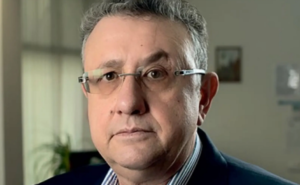
Shulman was at home under medical certificate at the time of his death. He had a broken leg strapped in an ‘Ilizarov’ apparatus, which is an external fixation used in orthopedic surgery to reshape broken bones. In his suicide note, which was found near his body by the police, he had written that the pain caused by the device was unbearable. However, investigators were not entirely convinced of the authenticity of the note. Moreover, with a fortune valued in the millions, Shulman could certainly afford expensive drugs or other forms of treatment.
Within Gazprom, however, Shulman was not a blameless figure. He was investigated by Gazprom’s security service in late 2021, which found irregularities in the transport department. For example, Shulman or other senior people in the division had allegedly manipulated lists of spare parts for the fleet. The price of the parts was much higher than the average cost, and Shulman was apparently aware of such irregularities.
25 FEBRUARY: ALEXANDER TYULAKOV
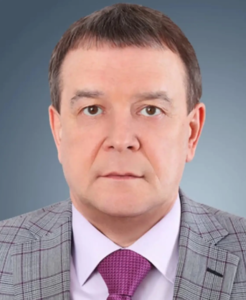
Nearly a month later, on 25 February, another high-profile ‘suicide’ took place in the picturesque town of Leninskoye, nicknamed ‘Gazprom’s nest’ because of the presence of several senior Russian officials and Gazprom executives.
The 61-year-old official was found dead in the garage. At the time of his death, Tyulakov was vice-president and head of security and human resources at the Unified Clearing Centre (UCC), which manages Gazprom’s finances.
Little further information is known about Tyulakov’s death. However, the police were reportedly informed of his death by an anonymous phone call. Almost at the same time as the police, Gazprom’s security service arrived at the scene. At the end of 2021, an internal audit was carried out within Gazprom, which reportedly revealed some irregularities.
It is important to note that Alexander Tyulakov should not be confused with Alexander Tyuliakov, who, as head of the UCC, manages Gazprom’s treasury. He is currently still alive.
28 FEBRUARY: MIKHAIL WATFORD
On 28 February, four days after the start of the Russian invasion of Ukraine, the lifeless body of Mikhail Watford was
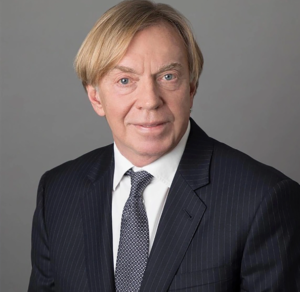
discovered by his gardener. Watford was born in the former Soviet Union, in what is now Ukraine, under the name Mikhail Tolstosheya. He had a career in the energy sector, particularly in oil and gas.
Watford’s body was found at his estate in Surrey, UK. The villa is in the grounds of the Wentworth Club, a golf club and resort which had served as the prison of Chilean dictator Augusto Pinochet in the late 1990s, pending his extradition to Chile.
Although Watford made his fortune in the oil and gas industry, there is no direct link between him and Gazprom. However, there are media reports that he was on Vladimir Putin’s hit list.
However, the oligarch himself had previously denied this claim. Other sources claim that his suicide was linked to the Russian invasion of Ukraine, which had an impact on Watford’s mental state.
23 MARCH: VASILY MELNIKOV
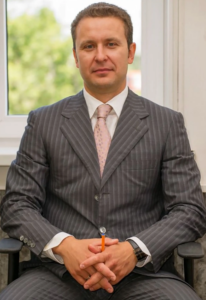
On the morning of 24 March, the Russian newspaper Kommersant announced the death of Vasily Melnikov, owner of the pharmaceutical company MedStom. According to initial police findings, the businessman first killed his wife and two children and then committed suicide. Neighbours and relatives, however, refuse to believe it.
The Ukrainian media outlet Glavred theorised that Melnikov’s business suffered heavy losses due to Western sanctions, and that he therefore committed this desperate act. Another theory circulating claims that Melnikov was arguing with a former business partner. There is no evidence of a link between Melnikov or MedStom and Gazprom.
18 APRIL: VLADISLAV AVAYEV
The next ‘suicide’ again took place in Russia, more precisely in a luxury flat in Moscow.
26-year-old Anastasia discovered the bodies of her father Vladislav Avayev, her mother and her 13-year-old sister Maria. Preliminary findings suggest that it was murder followed by suicide, with Avayev first killing his family and then himself. A total of 14 firearms were found in the flat.
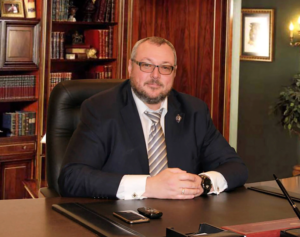
Avayev enjoyed some status in Russia, and was, like many others on this list, linked to Gazprom. Avayev amassed his fortune in a Russian construction company before taking up the position of deputy director of a major Kremlin department. Avayev later became a banker and was for a long time deputy chairman of Gazprombank, which is owned by the energy company itself and its pension fund, Gazfond.
Igor Volobuev, who held the same position at Gazprombank and who recently left Russia to fight for Ukraine, questions the whole situation. What’s more, he describes Avayev’s death as “staged”, and says it was murder. Avayev is said to have been responsible, among other duties within Gazprombank,, for the VIPs who had accounts there: the Russian president’s inner circle, and perhaps Putin himself.
19 APRIL: SERGEY PROTOSENYA
Less than 24 hours after Avayev’s death, the Spanish coastal town of Lloret de Mar, a favourite haunt of wealthy Russians, was rocked by a new crime. Spanish media reported that Sergey Protosenya’s body was found hanging in his villa. His wife and 18 year-old daughter were also found dead. It was the son who had raised the alarm when he could not reach his family.

Protosenya is said to have first killed his wife and daughter, and then committed suicide; exactly the same story as with Avayev. And here again, Gazprom is part of the story.
Protosenya had held various positions in Novatek, Russia’s largest independent gas company, between 1997 and 2015. Independence is of course quite relative as Gazprom is said to hold 10-20% of Novatek. Within Novatek, Protosenya was already vice-president and, until his retirement, head of the accounting department. His assets are estimated at 418 million euros.
In Protosenya’s circles, nobody believes that the man was capable of killing his family and himself. His son told the Daily Mail that his father is not a murderer. I am sure he did not do anything to my mother and sister”. The same rhetoric was heard from Anatoly Timoshenko and Roman Yuriovich, two close friends of Protosenya. Igor Volobuev also claims that Protosenya, like Avayev, was murdered by the Kremlin.
1 MAY: ANDREY KRUKOVSKY
On 1 May, the Russian news agencies TASS and Interfax reported the death of Andrey Krukovsky. The 37-year-old Russian was reported to have fallen from a cliff while hiking in the Caucasus mountains near Sochi, a fall from which he did not survive.
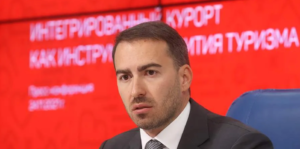
Until his death, Krukovski was the managing director of Krasnaya Polyana, a company that built all the facilities in the city of the same name for the 2014 Winter Olympics. Before that, he had been a member of the company’s board of directors. In Russia itself, he has been praised for his talent and expertise. Russian Natural Resources Minister Alexander Kozlov wrote on Telegram that Krukovsky “has done more than anyone else to develop tourism in the region. He has turned Krasnaya Polyana into a top resort.”
It is not surprising however, that Gazprom’s name comes up here. The energy giant, with the help of President Putin, is said to have bought and expanded the resort. Moreover, when Sochi was chosen as the host city for the Winter Olympics in 2014, Gazprom had the opportunity to develop the resort further.
The circumstances around Krukovsky’s death were highly questionable, as the man had years of climbing experience, and had even conquered Mount Kilimanjaro in Tanzania and Mount Elbrus, the highest and most prominent peak in Russia and Europe.
10 MAY: ALEXANDER SUBBOTIN
Alexander Subbotin wanted to cure his alcoholism with toad poison and rooster blood. But for the former boss of the Lukoil energy corporation, a visit to a shaman proved fatal.
The former top executive at Russia’s second-largest oil producer and owner of a lucrative shipping company reportedly died while visiting a couple of healers in Mytishchi, north-east of Moscow.
According to TASS news agency, Subbotin died of a heart attack.
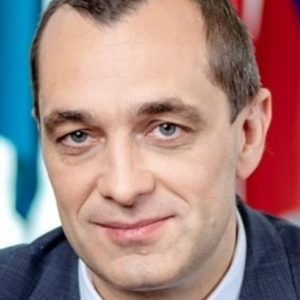
Magua Flores (real name Alexey Pindyurin) and Tina Cordoba (real name Kristina Teikhrib) are said to have given Subbotin the venom of a toad through an incision in his skin and then given him a bath in rooster blood. His body reacted quickly; he first vomited, according to the statements of the shaman and his wife to the police. The couple then gave him drops of herb extracts as a tranquiliser. He then fell asleep, and did not wake up again.
The Russian oligarch had approached the couple of healers to treat his alcoholism. As reported by the independent newspaper Moscow Times, Subbotin is said to have regularly had recourse to shamans and other such practitioners. In passing, it is interesting to note that President Putin himself is also said to have some unusual preferences as far as medical treatments are concerned.
JUNE 28: YEVGENY PALANT
Ukrainian-born telephone and IT mogul Yevgeny Palant and his wife Olga, also Ukrainian-born, were found with multiple stab wounds at their dacha near Moscow, by their 20 year-old daughter Polina.
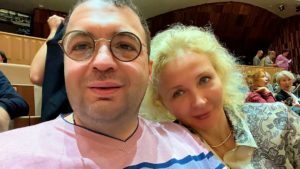
At first, it was assumed that the businessman murdered his wife and then committed suicide. However, some family members later suggested that in fact, the opposite was true. Apparently Olga had flown into a rage after discovering that her husband, who had close ties with the Kremlin, was about to leave her for one of his young mistresses. She allegedly stabbed him 14 times before inflicting fatal knife wounds on herself.
Family friends however disputed this scenario, saying that the couple’s relationship was very harmonious and that one of them killing the other because of jealousy was absolutely out of the question.
4 JULY: YURI VORONOV
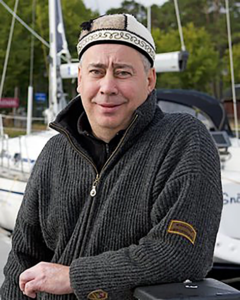
Yuri Voronov’s corpse was found floating in his swimming pool, at his home in Saint Petersburg, with a bullet in his head. The pistol was found at the bottom of the pool but forensic experts could not determine whether it was a murder or a suicide.
The 61 year-old oligarch ran a company that was a partner of Russian gas giant Gazprom, and as such was close to the Kremlin. According to Vanity Fair, the investigation favours the thesis of a “dispute” with business associates. His widow confirmed that her husband was “a victim of fraud” from some of his associates.
The circumstances remain very troubling however, especially since this mysterious death is in line with eight other strangely similar deaths among the Russian business elite since the beginning of the year.
1 SEPTEMBER: RAVIL MAGANOV
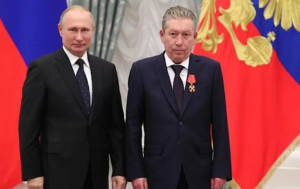
The latest news on the death of a Russian oligarch came from the Tass news agency. It concerned Ravil Maganov, the 67-year-old chairman of the board of directors of Lukoil, the Russian oil giant, the second largest energy company in Russia and one of the largest in the world.
According to Russian law enforcement officials Maganov was being treated at the Central Clinical Hospital following a heart attack. It was there that the Russian tycoon allegedly “ended his life” by “falling” from a window. They added that the official threw himself off the sixth floor of the hospital, where, in addition to heart problems, he was also diagnosed with a form of depression.
In the statement issued by Lukoil however, the confirmation of the death of the Russian oligarch did not make any reference to the nature of the death, mentioning only a “serious illness”.
It should be recalled that the Lukoil group was the first, in early March 2022, to publicly declare its opposition to the war in Ukraine. On 20 April, its chairman and main shareholder, Vagit Alekperov resigned after being included in the new list of Russian personalities sanctioned by the UK.
PUTIN AND HIS OLIGARCHS
The Putin system is constructed in such a way that it cannot survive without the loyalty of oligarchs who control the strategic sectors of the economy. The energy sectors, the raw material markets and exports as well as the arms sector are in the hands of oligarchs whose loyalty is the most assured.
The same cannot be said for the banking and financial sectors, and especially for the emerging high-tech sector. At the beginning of March, Mikhail Fridman, the Ukrainian-born, Russian–Israeli businessman, billionaire, and oligarch openly dissociated himself from the Kremlin – without opposing it – by calling for an end to the war in Ukraine.
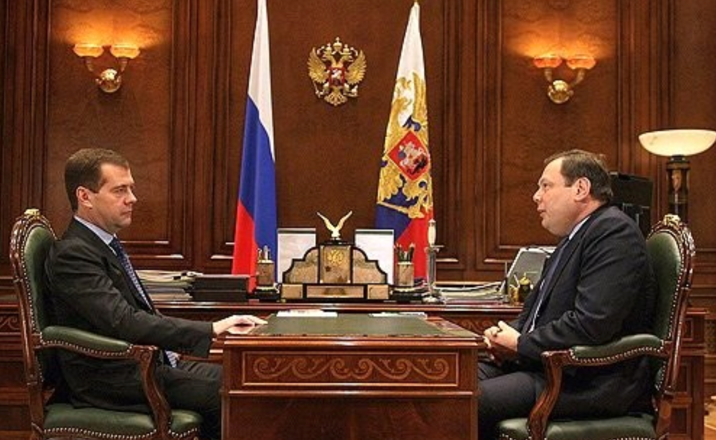
He was supported by other oligarchs, known for their lesser alignment with the Kremlin, such as Oleg Deripaska, president of the holding company Basic Element (energy, financial services, agriculture, construction, aviation). They were joined the next day by Oleg Tinkov, founder and owner of the Tinkoff Bank which was promptly threatened with nationalisation by the Putin administration. Tinkov went into hiding after selling his 35% stake, under pressure.
It should be noted that the nature of the power structure in Russia is not pyramidal, but circular.
In other words, Putin is not placed at the top of a pyramid, but at the centre of various circles of power, which are constantly shifting. Therefore, he must make sure that he is always at the very centre in order to control the balance.
This means that he must constantly consult and have at his disposal efficient, reliable and loyal sources of information within the institutions of the State, but also within the large industrial, financial and energy corporations.
For what Putin probably fears most is the formation of alliances between certain spheres of the state technocracy within the government, or even the presidential administration which he may no longer be able to control.
Some oligarchs could, in case of a stalemate in Ukraine, be tempted to organise, or at least participate in the overthrow of the head of the Kremlin, who would be accused of having led Russia to be banished from the concert of civilised nations.
And this is a discourse that could easily win over those Russian billionaires and oligarchs whose patriotism does not go so far as to cause the loss of too large a part of their fabulous fortunes.

